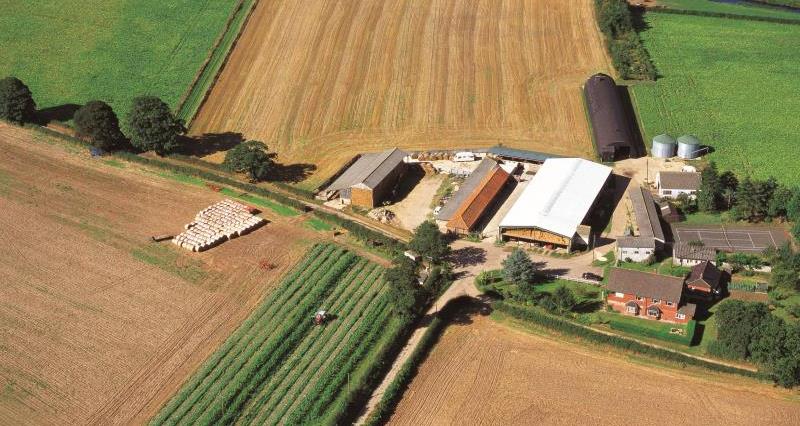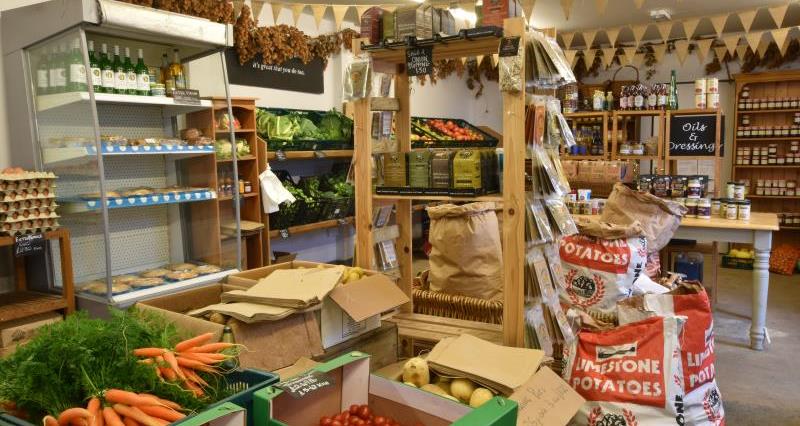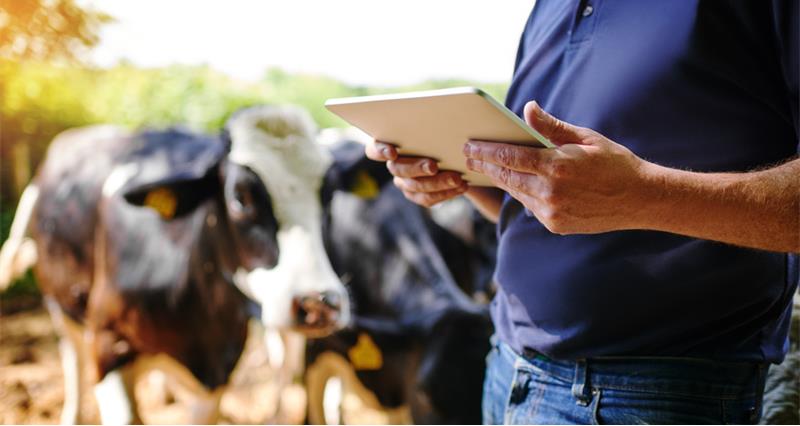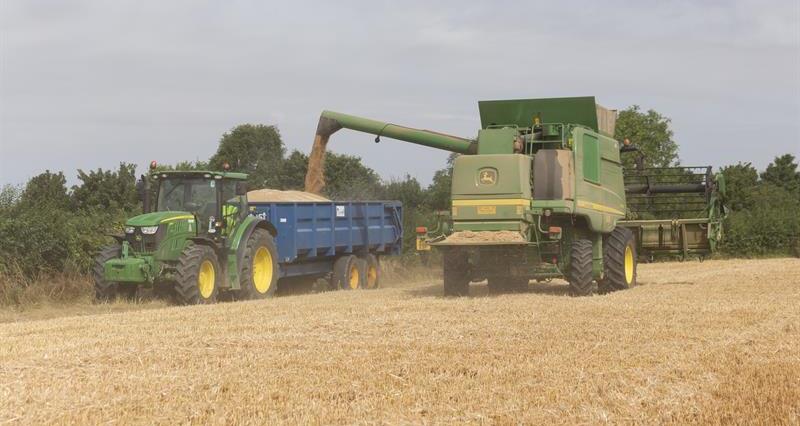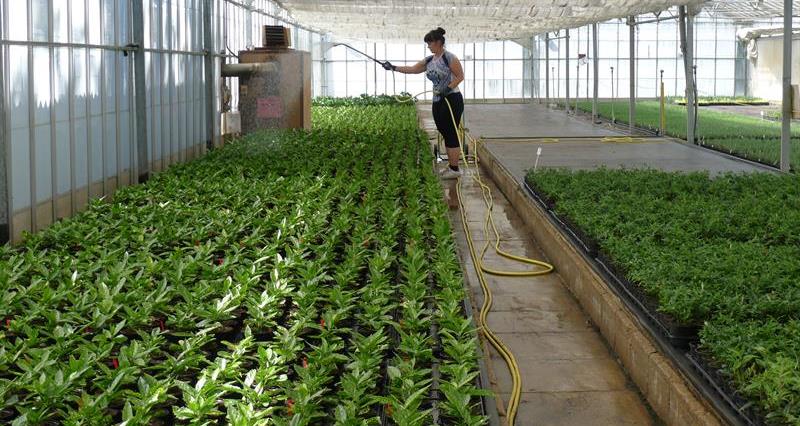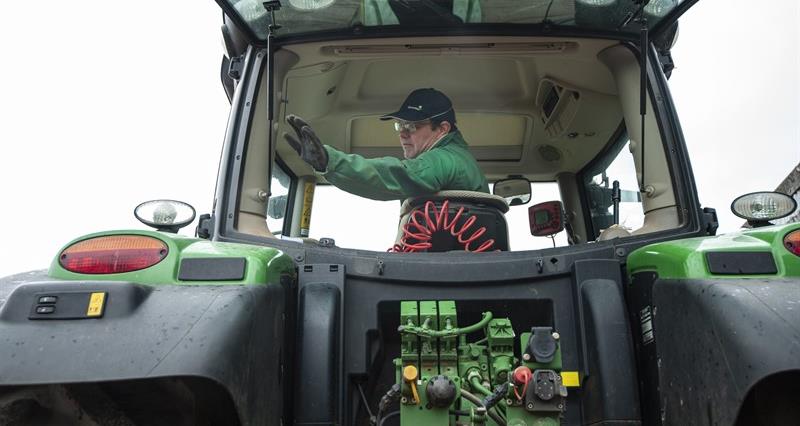These competitive productivity grants are split into small grants (Farming Equipment and Technology Fund) and large grants.
So far these schemes have been very popular and have in the main been oversubscribed, with farmers who have previously not engaged with these types of grants engaging for the first time. This has meant that lower scoring applications, or weaker projects, have not been taken forward by the RPA to either allow a claim or a full application.
�ʼһ���continues to work closely with Defra and the RPA on the development of these schemes.
Farming Equipment and Technology Fund 2025 offer
Farming Equipment and Technology Fund items will help improve:
- farm productivity
- the environment
- animal health and welfare
- management of slurry.
Scheme information published:
7 May 2025
2025 offer application window:
The three FETF grant themes of productivity, slurry and animal health and welfare have the same application window: 29 May 2025 – midday 10 July 2025. There will only be one application window for 2025.
What does it cover?
Under the three themes, the following number of items are available:
- Improving productivity – 66 items
- Slurry management – 17 items
- Animal health and welfare – more than 100 items
Do not refer back to earlier FETF rounds as the list of items has been reviewed and updated, and in some cases items have been removed from the lists.
Applicants are able to apply to any theme or all three for items that best suit their business.
There is a budget for the productivity and slurry theme of £30 million and £16.7 million for the animal health and welfare theme.
FETF is a competitive scheme and, if your application falls below the scoring threshold it will be unsuccessful and the RPA will reject it.��
As a result, not everyone who applies will be successful.��
The FETF 2025 offer is open to farmers, horticulturists, forestry owners. It is also open to contractors carrying out services to farmers, horticulturalists or forestry owners.
Grants for items on the animal health and welfare list are available to farmer or contractors in the following sectors:
- beef cattle
- dairy cattle
- sheep
- pigs
- poultry – laying chickens and broiler chickens (for both including rearing and breeding farms).
Each theme contains separate lists for eligible equipment tailored to that particular theme, with lists for arable, forestry and horticulture within the improving productivity theme, while the animal health and welfare theme has lists broken down into the key sectors, including sheep, poultry, pigs and cattle.
The FETF 2025 grants are for a minimum of £1,000 and a maximum of £25,000 for the three themes.
Grant funding contribution is between 40-50% depending on the theme applied for, and the grant amount listed against each item is the amount the RPA will pay you based on calculations for market averages for each item of equipment or, if you obtain a lower price for the item, the grant contribution will be based on that lower figure.
The responsibility is on the applicant to fund the remaining cost of an item. Items must be paid in full before a grant claim can be made.
You can find more information on our Farming Equipment and Technology Fund page. This includes information for those that have been successful with their initial application and making a claim.
See the links below for more information about the items available:
- .
- .
- .
Laying Hen Housing for Health and Welfare grant round 1
Scheme information published:
14 May 2024
Online checker timeline:
Opened on 26 June 2024: .
The checker closed on 18 September 2024 at 11.59pm.
The deadline for full applications is 11.59pm on 28 April 2026.
Timeline for full applications:
The RPA began inviting successful applicants to make a full application from 23 January 2025 (this is a change from the original published information inviting eligible applicants for veranda-only projects to make a full application from July 2024).
Invited applicants will have until 28 April 2026 to submit their full application. This applies for both comprehensive and veranda-only projects.
What does it cover?
On the back of announcements made at the Farm to Fork Summit on 14 May, the RPA has released the first details of this new health and welfare grant that is available in England.
The grant is being administered by the RPA and forms part of Defra’s Animal Health and Welfare Pathway, which aims to deliver the agreed health and welfare priorities for the laying hen sector.
This grant will be available for housing for laying hens and pullets.
It can be applied for to fund replacement or upgrade /refurbish existing laying hen or pullet housing – this is referred to as a ‘comprehensive’ project. Or the fund can be used to add a veranda onto existing laying hen or pullet housing, referred to as a ‘veranda-only’ project. Both approaches aim to provide animal health and welfare benefits.
As with other recent large Defra grants, producers can use an����to check the strength of their project and make an initial online application.
The grant for comprehensive projects is competitive, so your application will be scored against the aforementioned funding priorities. The grant for veranda-only projects is on a first-come first-serve basis.
There is a budget of £22m allocated to this grant.
Grants can cover up to a maximum rate of 40% of the eligible costs of a project. Applicants will need to be able to fund the remaining project costs from eligible sources. The guidance sets out what these are.
- For Comprehensive projects, the minimum grant you can apply for is £15,000 (40% of £37,500) and the maximum grant is £500,000 per applicant business.
- For Veranda-only projects, the minimum grant you can apply for is £5,000 (40% of £12,500). The maximum grant is £100,000 per applicant business.
Roof top solar funding is only eligible for comprehensive projects and the minimum grant amounts above does not include costs associated with rooftop solar photovoltaic (PV) systems. If you’re including rooftop solar PV systems as part of your project, the RPA will only fund the cost and installation of these based on a power requirement of 5 kilowatts per 1,000 birds within the housing, up to 25% of the eligible costs. Installing a solar PV system on your funded building will contribute to the grant funding priority of enhancing environmental sustainability. You do not need to include a rooftop solar PV system on your funded building.
You can find out more on our Laying Hen Housing for Health and Welfare grant page.
NFU Energy Help
Environmental permitting: NFU Energy can assist with obtaining the necessary environmental permissions, which are required as part of the grant application, including varying intensive farming poultry permits and obtaining standalone permits. The team also offers ongoing compliance management and assistance to ensure your project complies with the relevant legal regulations.
Rooftop solar installation: If you’re considering solar PV panels as part of your project, ��offers access to leading renewable energy installers, finance and insurance. The team can support you at every stage of your renewables journey, from securing all the necessary quotes required, to installer introductions, as well as providing ongoing assistance to ensure everything happens smoothly.
Improving Farm Productivity grant
Round 2
Scheme information published
12 December 2023
The online checker has now closed.
Full applications deadline
11:59pm on 31 July 2025
This competitive grant will be split along two themes:
- the first is robotics and automation
- the second will focus on solar energy.
Decisions were communicated to applicants in April 2024.
Each theme has a dedicated £15 million attached to it.
Each theme will require a separate application.
This grant aims to help farms reduce fossil fuel use, improve their energy resilience, and accelerate progress towards net zero. To this end, equipment relying on electric or renewable energy will be prioritised over similar equipment relying on fossil fuels. Biofuels are considered renewable for this grant, meaning they will be treated preferably.
Robotics and Automation theme
The first theme focuses on robotics and automation. Government guidance helpfully outlines what it defines as both robotic and automatic equipment, listing the specific functions required to carry out. The minimum requirement for a grant covering any equipment under this theme is £25,000, while the maximum claim amount is £500,000 per applicant business. Key is to understand what is considered eligible investments.
Solar theme
The second theme is for solar PV equipment, with a minimum of £15,000 available to fund solar PV panels, batteries, inverters, grid connections and more. The maximum claim amount available per applicant business is £100,000.
It is worth noting, however, that the maximum claim amount across both themes, if applied, remains £500,000. Where a business claims on both themes, their maximum claim remains capped at £500,000, of which up to £100,000 can be allocated to the solar power theme. There will be two applications required, one for each theme.
Eligible costs include the upgrading of the electricity supply to the holding, but only to the scale of power needed to support the project. For example, where 100kW is needed, and a holding upgrades its supply to 200kW, only half of the upgrade costs will be covered by the grant. There will need to be clear, detailed evidence outlining the power requirements of the project in full application to support this.
Capital grants will be made available at an intervention rate of 25% for the solar theme, and 50% for the robotics and automation theme. Defra is now in the process of agreeing more of the finer details with the online checker now open.
The funding for this grant has been increased from the original budget of £30 million to £50 million. The increase from £30 million (£15 million for automation and robotics and £15 million for rooftop solar) to £50 million is expected to be split across £25 million for automation and robotics and £25 million for rooftop solar.
Further information
The key is understanding what is in scope (there are detailed specifications given) and what is not eligible; reading the guidance is key for both themes.
Our NFU experts have summarised the details of the scheme. Visit: Improving Farm Productivity grant – round 2.
More information, including more specific details of the eligibility criteria for certain items, can be found at:
Application process
If shortlisted to put in a full application, then reading the guidance first will help you as it sets out what you need to consider, what information you will need to have in order to make an application.
NFU Energy Help
If you’re considering solar PV panels as part of your project, offers access to leading renewable energy installers, finance and insurance. The team can support you at every stage of your renewables journey, from securing all the necessary quotes required, to installer introductions, as well as providing ongoing assistance to ensure everything happens smoothly.
Round 1
This was offered in 2021 and 2022 with full applications needing to be submitted by 31 January 2023.
This scheme has now closed to new applications, but claims in the system are working their way through the RPA process.
What did it cover?
The competitive Improving Farm Productivity grant was to improve farm productivity through robotic (for example automated weeding / voluntary milking systems / feeding systems) or automation (for example advanced ventilation systems) and also mild slurry acidification treatment support.
Grant contributions range from £35,000 to £500,000 with a 40% intervention rate.
Find out more by visiting our Improving Farm Productivity round 1 page.
Slurry Infrastructure grant
Round 2
Scheme information published
12 October 2023
Initial outline application period (Stage 1)
Closed on 17 January 2024
Deadline for location and design assessment (Stage 2)
30 September 2024
Deadline for full application (Stage 3)
11.59pm 27 June 2025
A third round is expected to be launched in autumn 2024.
A number of important changes have been made for round 2:
- Pig farmers will be able to apply for a grant to cover up to 8 months’ worth of storage rather than 6 months’ worth, while cattle farmers will again be able to apply for 6 months’ worth.
- All farmers can apply for a grant towards the cost of a slurry separator as part of their wider application, though the resulting reduction in slurry cannot be used to justify a lower storage requirement.
- Those with stores which are already fit-for-purpose can apply for a grant towards the cost of an impermeable cover only, but the minimum grant threshold of £25,000 still applies.
- In-situ cast concrete stores will now be available as an alternative to circular and panels stores, lagoons, and large volume supported bags, allowing stores to be built more easily in hard-to-access locations.
- There will be an option for landlords to underwrite grant funding agreements, which would see them take over agreements if the tenant does not complete the project.
Defra understands that some farmers who applied for round 1 may want to amend their application to take advantage of the revised offer. The RPA is contacting round 1 applicants with a time-limited opportunity to update their application if they want to include these changes in their project, without having to reapply.
The RPA and Defra made decisions on initial applications received by 17 January 2024. These were made by early April 2024. Those shortlisted now need to work on the design and location checklist and send to the RPA by 30 September 2024.
Defra does not currently plan to make any further changes to the offer for round 3.
For more information on round 2, visit: Slurry Infrastructure grant – round 2.
Round 1
Scheme information published
23 November 2022
Initial outline application period closed
31 January 2023
Decisions on initial outline applications
Decisions communicated by late March
Full application deadline
28 June 2024
What did it cover?
Round 1 of the Slurry Infrastructure grant helps dairy, beef, pig farmers in England invest in future-proofed slurry infrastructure and nutrient management systems with an aim to help reducing water and air pollution risk from slurry.
These first-year grants were aimed at covered slurry store construction projects, to enable farmers to get to six months storage capacity based on existing livestock numbers (meaning the typical number of animals you kept on the farm over the last year).
Defra is grant-funding a range of storage types and situations which farmers can choose from a list which needs to meet regulatory and building standards. It will help replace, build new or expand existing slurry stores to provide six months’ storage.
Grant-funded projects will need to maintain six months’ storage capacity for all animals on the holding for the duration of the grant funding agreement, irrespective of future livestock numbers. This means you’ll need to make appropriate upgrades to your storage and slurry management if you increase your herd size in the future.
What happened since 31 January 2023?
It is a competitive fund. The RPA prioritised projects which had the greatest environmental benefit, based on areas that need urgent action to:
- reduce nutrient pollution from agriculture
- restore natural habitats
What happened since the end of March 2023?
Defra started contacting successful applicants via letter to inform them that they will now need to prepare a full application for Defra to consider. These include all eligible applicants from the priority areas outlined by Defra, as well as those with projects scoring highly in both water and air quality improvements.
Successful applicants now need to go through EA’s location and design check and secure planning permission for their project as well as analysing their financial viability, if they have not already done so. The deadline for the full application, including these two elements, will be 28 June 2024.
Defra also changed the way it manages the standard cost funding for these grants. If your total amount for the project is less than what was calculated initially, then Defra will maintain their matched funding of 50%, of the actual total cost.
When Round 2 was announced, those still to progress their Round 1 applications were offered to vary their projects to take account of the revised Round 2 offer.
You can find out more by visiting: Slurry Infrastructure grant | �ʼһ���
��
Calf Housing for Health and Welfare grant
The application window has now closed for new applications.
Full application deadline was:��30 April 2025
Latest news
Decisions for this grant for those who were successful and those who were not, were communicated to applicants in early January 2024. The majority for this round were successful. Full applications needed to have been submitted on 30 April 2025.
Defra published guidance on this to fund cattle housing for farmers in 2023. The has now closed for those interested in applying. The process was put in place to help you determine whether you were eligible and whether your proposal met the aims of the scheme. It is therefore crucial to read the current guidance on the scheme to ensure your proposal has the best chance of succeeding.��
This grant can contribute up to 40% of the cost of cattle housing. Aimed at the dairy and beef sectors, the grant aims to improve the health and welfare of calves (up to 6 months old) by providing a good ambient environment as well as facilitating social contact through group or paired housing.
The grant can contribute to calf housing which:
- provides good ventilation and protects calves from draughts
- protects calves from getting too hot or too cold
- has solid floors with adequate drainage and straw bedding
- houses calves in pairs or groups
- provides calf enrichment
- meets environmental objectives, such as installation of solar panels.
This was a competitive grant awarded by the RPA. It focused on the projects which have the largest beneficial impact on animal health and welfare, however, it will also considered innovation and productivity, as well as environmental incomes.
The grant's purpose was to enable farmers in England to access funding, ranging from £15,000 to £500,000, to co-finance cattle infrastructure projects, prioritising new and upgraded calf housing which will improve conditions for livestock and help to boost farmers’ productivity and profitability.
Defra will be extending this infrastructure grant to other livestock sectors, with forthcoming funding available for pig and poultry farmers.
You can find out more by visiting: Calf Housing for Health and Welfare grant
NFU Energy Help
If you’re considering solar PV panels as part of your project, NFU Energy offers access to leading renewable energy installers, finance and insurance. The team can support you at every stage of your renewables journey, from securing all the necessary quotes required, to installer introductions, as well as providing ongoing assistance to ensure everything happens smoothly. Learn more at: .��
Smaller Abattoir Fund
Initial guidance published: 13 December 2023
Application deadline: 30 September 2024.
Smaller abattoirs can now access a share of £4 million made available to support them and maintain our smaller abattoir networks. Funding will be available from between £2,000 to £75,000 per business. This will be paid at a 50% intervention rate.
An item costing £10,000 would, therefore, receive £4,000 in grant funding, with the abattoir business financing the remaining £6,000 for the item. Given the irregularity of cash flows for these businesses, the RPA will allow three applications throughout the application window to claim a maximum of £60,000 (now increased to £75,000) to ensure maximum support is available to smaller abattoirs.����
The unique nature of individual abattoirs, serving their local producers, means that the RPA will also consider additional investments on items not explicitly listed under the scheme guidance.
Applicants considering this will be required to provide evidence that the investment aligns with at least one of the fund’s aims, objectives and eligibility criteria.
There is £4m funding for this fund. The funding is designed to upgrade existing smaller abattoirs, not necessarily to establish new ones and not directly be connected to NFU members unless they operate one.
More information is available at: .
The deadline for this fund will be 30 September 2024.
Latest news
On 20 May 2024, Defra announced that, in recognition of the cash flow challenges that many smaller abattoirs face, it would increase the support within this grant, by increasing the intervention rate from 40% to 50% and also the maximum grant amount from £60,000 to £75,000. The minimum grant amount remains the same at £2,000.
Other support
On 14 May 2024, the government announced £3 million in support for new and mobile abattoirs through the Farming Investment Fund. This builds on the first round which opened in 2023 and set out above. It has an aim to boost the sustainability and efficiency of red meat and poultry smaller abattoirs across England.
Water management grant: Rounds 1 and 2
Round 2
Initial outline application window opened
19 April 2023
Initial outline application window closed
11:59 12 July 2023
The full applications deadline for successful applicants has now closed.
11:59 on 31 October 2024
This scheme has now closed to new applications, but claims in the system are working their way through the RPA process.
This round of the grant scheme was open to arable and horticultural businesses which were either already growing, or intending to grow, either irrigated food crops, ornamentals or forestry nurseries.
Applicants had until 12 July 2023 to submit an initial application. Upon assessment by the RPA, those who are selected to progress will be required to submit a complete a full application by 31 October 2024. You must include abstraction licences and planning permission confirmation in your application for Round 2.
The grant can go toward capital items to improve on farm productivity by mitigating water loss and securing water for irrigation use. These can include:
- Modifying existing water application equipment to more efficient models (moving from rain guns to trickle or boom application).
- Securing water access with a reduced environmental impact (such as by reservoir construction, rainfall harvesting or winter abstraction rather than summer abstraction).
- Improving business resilience and prosperity (for example, using new irrigation systems and newly irrigated areas to increase productivity or introduce high value crops and/or moving away from fossil fuel powered equipment)
- Encouraging collaboration for water storage and irrigation of crops (for example supplying water to neighbouring farmers).
For a full list of available equipment, visit:
The grant range will be between £35,000 and £500,000 per applicant business and will cover up to 40% of the cost of eligible items.
Decisions were made in August 2023 on the initial applications received by the RPA, successful initial applicant has have until 23:59 on 31 October 2024 to put in their full application.
You can find out more by visiting our guide to the Water Management Grant��page.
Round 1
Launched
16 November 2021
Initial outline application window closed
12 January 2022
Full applications deadline for successful applicants
- Tranche 1: 30 June 2022 for those that did not request an extension with planning and abstraction licences in place by 31 December 2022.
- Tranche 1: 30 September 2022 for those that did request an extension with planning and abstraction licences in place by 31 March 2023, and latterly 31 May 2023 for some cases.
- Tranche 2: 30 November 2022 with planning and abstraction licences in place by 31 May 2023.
What did it cover?
The competitive FTF for water management grant offered grants to improve farm productivity through more efficient use of water for irrigation / secure water supplies for crop irrigation by the construction of on-farm reservoirs and related equipment.
Grant contribution range from £35,000 to £500,000 with a 40% intervention rate.
What has happened since 12 January 2022?
As a reminder, there was a two-stage application process with an online eligibility and desirability scoring checker that assessed initial applications. This closed in January 2022, though supporting permissions and licences could be submitted where agreed up to 31 May 2023.��
The RPA has since made three decisions on submitted initial applications:
- Strong scoring projects have been invited to progress with a full application.
- Some lower scoring projects were initially put on hold but have since been invited to put in a full application, as set out above in the form of Tranche 2.
- The weakest projects have been turned down.
After the deadlines set out above, the RPA will assess the full applications and decide on which will be offered grant funding. The decisions are said to be made within 60 days of this deadline.
Critical is the need to have planning permission/abstraction licences in place. If there are delays getting planning permission or abstraction licenses, speak to the RPA about whether an extension is possible.��
You can find out more by visiting our guide to the Water Management Grant��page.
Adding Value grant
Scheme information published
24 May 2022
Initial outline application closed
21 July 2022
Full application deadline for successful applicants
31 January 2024
This scheme has now closed for all applications.
What did it cover?
The Adding Value grant scheme was set up to award capital grants of between £25,000 and £300,000 to farmers and growers to support their work processing, diversifying, and adding value to their agricultural and horticultural products.
It is a competitive fund. The RPA will award funding to the strongest applications.
You can find out more by visiting our Adding Value grant page.
What has happened since 21 July 2022?��
As a reminder, there was a two-stage application process with an online eligibility and desirability scoring checker that assessed initial applications. This closed on 21 July 2022.
The RPA has assessed the initial applications received. At this point we expect that:
- the strongest scoring projects will have been invited to progress with a full application
- lower scoring projects may be put on hold in case funds become available later if projects initially asked to progress drop out of the process
- the weakest projects will be turned down.
On 17 August 2022, the RPA announced that applicants who have been invited to submit a full application for this grant could now go ahead with their submission. If you have been invited to submit a full application, the deadline for submitting your full application form and supporting evidence was 31 January 2024.
The RPA will assess the full applications and decide which will be offered grant funding as they are received. The decisions are said to be made within 60 days of this deadline.����
The RPA cannot assess full applications or commit funds to projects that are waiting on planning permission to proceed. In this instance, you will need to send a copy of the planning permission approval together with your full application submission.
You can find out more by visiting our Adding Value grant page.
Future grants and latest news
What else is in the pipeline?
On 30 October 2024, following the Autumn 2024 Budget, Defra stated that they were looking to simplify and rationalise our grant funding. They want to ensure that grants are targeted towards those who need them the most and where they can deliver the most benefit for food security and nature, particularly small farmers. We will confirm future grant rounds in due course.’
Below you can find information on what has been announced by the previous government up to 22 May 2024.
Large grants
Following the Defra Secretary of State's announcement at the Oxford Farming Conference, and the Prime Minister's address at NFU Conference, we've summarised the additional grants planned for 2024:
£116m – large and small grants – The Slurry Infrastructure grant
This grant is used to replace, build additional, expand or cover existing slurry stores to reach the grant storage requirements. This covers an increased grant offer for 2024 as well as £10.5 million budget made available via the Farming Equipment and Technology Fund 2024 offer.
£91m – large and small grants – Animal Health and Welfare��
This funding is to support farmers with the costs of items designed to improve the health and welfare of livestock.
This covers the current budget of £10 million for��Calf Housing of AH&W (Animal Health and Welfare), and forthcoming other large grant and Adult Cattle for AH&W due to launch in 2024.
This budget also includes the��Farming Equipment and Technology Fund��2024 AH&W theme offer.
£15m – large grants – Adding Value Grant
The Adding Value Grant��is for farmers who want to expand their farm operations into processing, packing, and retailing.
Currently Defra is considering the level of demand for round 1, but it is hopeful there will be a further round to follow.
On 14 May 2024, the government announced £3 million in support for new and mobile abattoirs through the Farming Investment Fund and this is expected to be offered through a second round of the Adding Value Grant.
This builds on the first round which opened in 2023 and set out above. It has an aim to boost the sustainability and efficiency of red meat and poultry smaller abattoirs across England.
£15m – large grants – Water Management Grants
The��Water Management Grants��are for projects such as on-farm reservoirs and works to improve irrigation.
This funding is for a round 3, with an increase from the £10 million from rounds 1 and 2.��
NFU Mutual Agri-Tech report
If you're thinking about investing in new equipment or technology, NFU Mutual's Agri-Tech Report provides information and examples to help you make the right decision for your business.��
Visit the NFU Mutual website to find out more and download the report:
